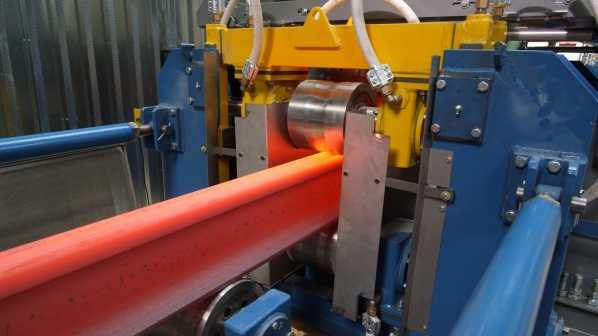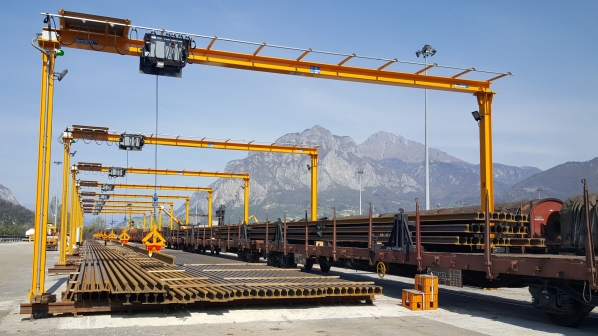The steel for British Steel’s SF heat treated rail, which are designed for use on curved or heavy-haul lines, is manufactured at the company’s facility in Scunthorpe, Britain, before being transported to the company’s plant at Hayange, France, where it is rolled into rails and further strengthened using a heat treatment process.
The manufacturing process uses inductive heating followed by compressed air cooling in one continuous movement. British Steel says the process does not require roller-straightening afterwards which results in a more durable ‘stress-free’ rail.
British Steel says its SF rail delivers on average a threefold increase in the defect size needed to initiate fatigue in the rail foot compared with standard R350HT rails. The company says that if fatigue does start, the low residual stress in SF350 doubles the lifetime to failure, compared with standard on-line/in-line heat treatment methods.
British Steel opened a rail logistics hub in Lecco, near Milan, last year to service demand in Italy.

“We developed ‘stress-free’ heat-treated rail to address the industry needs for high resistance to wear, rolling contact fatigue and improved foot fatigue performance to extend the service life of rail and thereby reduce the whole life cost,” says British Steel’s commercial director rail, Mr Richard Bell.
In September, British infrastructure manager Network Rail announced it was extending its supply contract with British Steel for two years while in October Infrabel, Belgium’s infrastructure manager, signed a four-year agreement.

